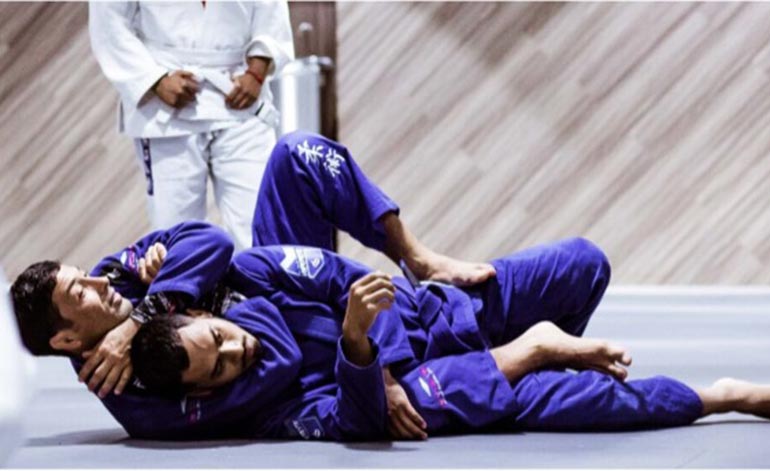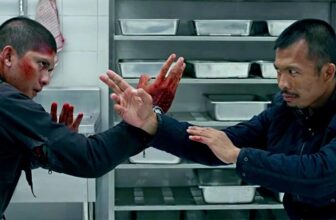
Martial arts classes are life-changing spaces where students acquire a wide range of abilities that go well beyond technical expertise.
The core of martial arts is not limited to fighting; rather, it is a comprehensive platform that supports people’s development in all areas of their lives.
Martial arts classes provide invaluable environments that greatly help students’ diverse growth, from improving physical fitness to developing social skills and mental fortitude.
We’ll explore the significant ways that martial arts instruction stimulates the development of all skills, molding students into resilient, well-rounded individuals in this investigation.
Physical Skill Development in Martial Arts Classes
Physical skill development in martial arts classes is an essential part of instruction that concentrates on developing and perfecting different physical skills necessary for martial arts proficiency.
Beyond the fundamentals of fighting, these sessions are designed to help students develop a well-rounded set of physical talents.
1. Strength and Conditioning
Martial arts classes often include workouts to improve muscle endurance and strength. With the use of these exercises, participants can strengthen the particular muscle areas needed to carry out skills, increasing their overall physical strength and endurance.
2. Flexibility and Agility
In martial arts, flexibility is essential for both executing moves smoothly and avoiding injuries. To improve flexibility, classes include dynamic movements and stretching exercises.
Drills in agility enhance reflexes and coordination, allowing participants to move quickly and respond appropriately.
3. Coordination and Balance
Martial arts require precise motions and balanced technique. Drills that enhance motor skills, balance through certain forms and exercises, and coordination between various body parts are the focus of the classes.
4. Cardiovascular Endurance
Martial arts training often entails intense exercise, sparring, or heart-rate-raising exercises to increase cardiovascular endurance.
It takes endurance training to maintain extended periods of high-intensity physical activity.
Mental Skill Development in Martial Arts Classes
Mental skill development in martial arts classes is a fundamental component that goes well beyond the instructional methods.
These courses place a strong emphasis on developing the mental skills necessary for both personal development and success in martial arts and in life.
1. Discipline and Focus
Martial arts training develops discipline by following specified regulations and following prescribed procedures.
Students gain the ability to maintain concentration, commit to self-improvement, and master skills with constant practice.
2. Self-confidence and Resilience
Students develop self-confidence as they advance in their training by conquering obstacles and hitting goals.
Martial arts programs offer an encouraging atmosphere that develops resilience in students by training them to keep going in the face of obstacles and disappointments.
3. Stress Management and Mental Resilience
Effective stress and pressure management are taught in martial arts classes. Professionals develop mental resilience that they may use outside of the dojo by learning how to remain composed under pressure.
Social Skill Development in Martial Arts Classes
Social skill development in martial arts classes goes beyond fighting methods by stressing the development of social skills and encouraging a feeling of camaraderie among practitioners.
1. Teamwork and Cooperation
Martial arts training typically includes group activities and partner drills to promote cooperation and teamwork. To assist each other’s success and advancement, practitioners learn how to collaborate.
2. Respect and Discipline
In these martial arts classes, respect for instructors, other students, and the martial arts tradition are essential.
Pupils follow a structure that is well-organized, encouraging self-control, modesty, and respect for others.
3. Leadership and Communication
Individuals can assume leadership roles through martial arts classes, which develop leadership, decision-making, and mentoring abilities.
Furthermore, good communication is promoted during training, which improves practitioners’ capacity for idea transmission and productive teamwork.
Case Studies or Testimonials
Case studies or testimonials within the realm of martial arts classes act as convincing proof of the profoundly transforming effect these classes have on individuals.
Instructors, parents, students, and practitioners frequently share their own firsthand stories or experiences in them. These stories demonstrate accomplishments, personal development, and the many advantages of practicing martial arts.
Testimonials highlight the great effects martial arts instruction has had on a variety of life aspects such as social relationships, mental toughness, physical health, confidence, and discipline.
These personal accounts present concrete evidence of the deep and varied personal growth that students of martial arts classes undergo, serving as a source of inspiration and encouragement for those who might be thinking about taking a similar path.
Challenges and Growth Opportunities in Martial Arts Training
Challenges and growth opportunities are inherent in martial arts training and act as stimulants for growth and development on a personal level.
Students face a variety of challenges, like learning complicated techniques, getting over physical limitations, or enduring demanding training programs. But these difficulties also offer priceless chances for personal development.
Accepting failures and setbacks as a necessary component of the learning process promotes resilience, adaptability, and a growth mentality.
Martial arts training promotes self-improvement through goal-setting and achievement as well as learning from mistakes and triumphs.
These experiences contribute to well-rounded personal growth outside of the dojo by developing life skills like perseverance, determination, and the capacity to thrive in the face of adversity in addition to improving martial arts proficiency.
Conclusion
In conclusion, martial arts classes serve as unmatched venues that encourage students to acquire a variety of skills.
These programs are not just about fighting skills; they are also about developing mental toughness, social skills, and physical conditioning.
People can develop strength, agility, and balance via focused training, which paves the way for a healthier way of life. Furthermore, the emphasis on self-control, discipline, and stress reduction fosters mental toughness and confidence that go well beyond the gym.
In addition, martial arts classes offer a supportive setting for respect, cooperation, and clear communication—all important life skills. The difficulties that arise during martial arts training present priceless chances for personal development, encouraging flexibility, resiliency, and a growth mentality.
In the end, martial arts instruction greatly aids in the development of well-rounded people by giving them a wide range of skills necessary to succeed in both martial arts and life’s various obstacles.






